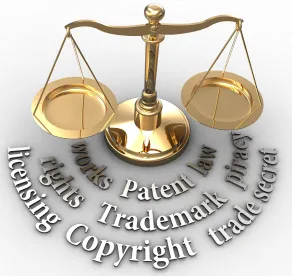The United States Supreme Court in Impression Products, Inc. v. Lexmark International, Inc., held that patent owner’s decision to sell a product exhausts all of its patent rights in that item, regardless of any restrictions the patent owner purports to impose — for both domestic and international sales.1
Lexmark International Inc. (“Lexmark”) designs, manufactures and sells toner cartridges to consumers in the United States and globally. As part of the sale, Lexmark gives customer two options: (1) buy a toner cartridge at full price, with no restrictions; (2) buy a cartridge at a discount and agree to use the cartridge only once and not to transfer the cartridge to anyone but Lexmark. Remanufacturers such as Impression Products, Inc. (“Impression”) started acquiring the cartridges from the United States and abroad, then refurbished and resold them in the United States. Lexmark sued Impression, along with other such remanufacturers for patent infringement.
The district court granted Impression’s motion to dismiss as to the domestic option (2) cartridges, but denied the motion as to all the cartridges sold abroad. On appeal, the Federal Circuit held that a patentee may sell option (2) cartridges and retain the right to enforce, through patent infringement lawsuits, via lawful restrictions on post-sale use or resale, and that the cartridges that Lexmark sold abroad do not exhaust its patent rights over that item. Lexmark was therefore free to sue for infringement when Impression imported cartridges that Lexmark had sold abroad.
The Supreme Court in overruling the Federal Circuit, held that both the domestic and international sales exhausted all Lexmark’s rights under the Patent Act, regardless of any restrictions the patentee purports to impose. If the patentee negotiates a contract restricting the purchaser’s right to use or resell the item, it may be able to enforce that restriction as a matter of contract law, but it may not do so through a patent infringement lawsuit. Comparing international exhaustion of patent rights to similar exhaustion under copyright law, the Court held the patent exhaustion doctrine has its roots in the antipathy toward restraints on alienation, and nothing in the Patent Act shows that Congress intended to confine that principle to domestic sales only.
Justice Ginsburg concurred with respect to domestic patent exhaustion, but dissented relating to the issue of international exhaustion, where she would have ruled that a foreign sale does not exhaust a U.S. inventor’s patent rights in the United States.
The decision today negates the threat of infringement for violation of post-sale restrictions. However, as the Court stated, such post-sale restrictions are still valid and may still be enforced under contract law.
1 Impression Products Inc. v. Lexmark International Inc., 581 U.S. ___ (2017).




 />i
/>i

